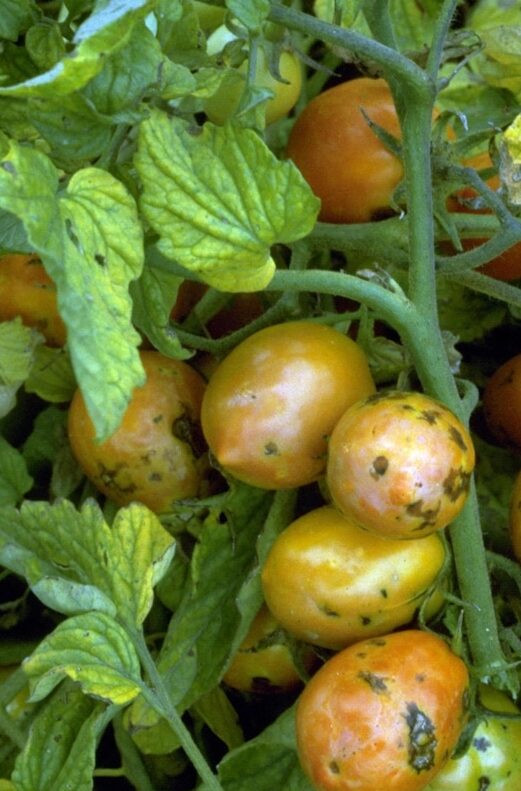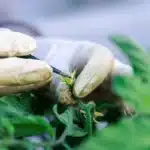Understanding TSWV and Its Impact on Crop Yields

Tomato Spotted Wilt Virus (TSWV) is a major agricultural challenge affecting a wide variety of crops worldwide. For farmers and agribusinesses, controlling this virus is crucial to maintaining productivity and profitability. At Trust Seeds, we prioritize innovation in plant breeding to tackle such challenges, focusing on developing TSWV-resistant cultivars through advanced genetic research.
In this article, we’ll explore the impact of TSWV on crops, the role of resistance genes in combating the virus, and how Trust Seeds is leading the way in producing resilient, high-performance seeds for sustainable agriculture.
Learn More on our website
Understanding TSWV: A Global Agricultural Threat
What is TSWV?
Tomato Spotted Wilt Virus (TSWV) is a destructive pathogen belonging to the Tospovirus genus. It was first identified in the early 1900s and has since emerged as a major threat to various crops, including tomatoes, peppers, lettuce, and ornamental plants.
TSWV is primarily spread by thrips, small insect vectors that feed on infected plants and transfer the virus to healthy ones. Once infected, plants suffer significant damage, resulting in yield losses and reduced crop quality.
Symptoms of TSWV in Plants
Identifying TSWV early can help minimize its impact. Common symptoms include:
- Chlorotic or Necrotic Spots: Yellow or brown patches on leaves.
- Ring Patterns: Concentric patterns on leaves or fruits.
- Leaf Deformation: Twisted or curled leaves with discoloration.
- Stunted Growth: Reduced plant height and delayed flowering.
These symptoms vary by crop, making expert diagnosis essential for proper management.
Impact of TSWV on Agriculture
The economic and agricultural consequences of TSWV include:
- Reduced Crop Yields: Affected plants produce fewer fruits and seeds.
- Quality Decline: Marketable produce is often deformed or discolored.
- Increased Costs: Farmers face higher expenses for pest control and disease management.
TSWV’s ability to infect over 1,000 plant species exacerbates its impact, making it a pressing concern for global agriculture.
Managing TSWV: An Integrated Approach
Controlling TSWV requires a combination of strategies, including:
- Thrips Management: Using insecticides, biological controls, and sticky traps to reduce thrip populations.
- Cultural Practices: Removing infected plants, managing weeds, and practicing crop rotation.
- Genetic Resistance: Incorporating TSWV resistance genes into susceptible crops.
Among these, genetic resistance offers the most sustainable and long-term solution, aligning with Trust Seeds’ mission to empower farmers with resilient crops.
The Science Behind TSWV Resistance Genes
Resistance genes are genetic components that enable plants to detect and defend against specific pathogens, including TSWV. These genes are incorporated into crop varieties through traditional breeding or advanced biotechnological techniques.
Key TSWV Resistance Genes
1. Tsw Gene:
Used extensively in pepper breeding, the Tsw gene provides robust resistance to TSWV by initiating a hypersensitive response (HR). This process limits the virus’s ability to spread within the plant.
2. Sw-5 Gene:
The Sw-5 gene is a game-changer for tomato breeding. It offers broad-spectrum resistance by recognizing specific viral proteins and activating defense mechanisms.
3. RNA-Based Strategies:
Innovative approaches, such as RNA interference (RNAi), are being explored to provide targeted resistance by silencing the virus’s ability to replicate.
Trust Seeds: Advancing TSWV Resistance in Crops
At Trust Seeds, we are dedicated to delivering high-performance seeds that combine productivity with resilience. Our approach to breeding TSWV-resistant cultivars includes:
- Germplasm Screening:
We identify and select parent plants with strong natural resistance to TSWV. - Marker-Assisted Selection (MAS):
Using advanced DNA marker technologies, we pinpoint resistance genes like Tsw and Sw-5 to accelerate breeding. - Rigorous Testing:
All our TSWV-resistant seeds undergo extensive field trials to ensure they perform well under diverse conditions. - Farmer-Centric Solutions:
Our seeds are tailored to meet the specific needs of farmers, offering high yields and exceptional disease resistance.
Benefits of TSWV-Resistant Seeds by Trust Seeds
By choosing Trust Seeds’ TSWV-resistant cultivars, farmers can enjoy:
- Higher Yields: Healthy crops lead to increased productivity.
- Reduced Dependency on Pesticides: Genetic resistance minimizes the need for chemical inputs.
- Improved Profitability: Enhanced quality and yield ensure better market returns.
- Environmental Sustainability: Our seeds contribute to eco-friendly farming practices.
Future Innovations in TSWV Resistance
As leaders in seed production, Trust Seeds is committed to staying ahead of emerging agricultural challenges. Our research teams are exploring:
- CRISPR/Cas9 Technology: For precise gene editing to enhance resistance.
- Stacking Resistance Genes: Combining multiple genes for durable and comprehensive protection.
- Collaborative Research: Partnering with global institutions to develop cutting-edge solutions.
FAQs About TSWV and Resistance Genes
Q1: Which crops are most affected by TSWV?
A: TSWV affects tomatoes, peppers, lettuce, peanuts, and various ornamental plants.
Q2: How do thrips transmit TSWV?
A: Thrips acquire TSWV by feeding on infected plants and transfer it to healthy ones through their saliva.
Q3: Can TSWV be eradicated?
A: Complete eradication is challenging, but effective management strategies and resistant cultivars can minimize its impact.
Q4: What are the limitations of Tsw and Sw-5 genes?
A: Resistance may break down over time as the virus evolves. Combining these genes with other strategies ensures durability.
Q5: How can farmers access TSWV-resistant seeds?
A: Farmers should consult trusted seed production companies that specialize in breeding resistant cultivars.
Q6: Are there any non-genetic methods to control TSWV?
A: Yes, IPM practices like thrip control, crop rotation, and sanitation play a crucial role.
Q7: Can TSWV-resistant seeds completely prevent the virus?
A: While resistance genes provide significant protection, integrated pest management (IPM) practices enhance overall control.
Q8: How can farmers identify TSWV symptoms?
A: Look for leaf spots, ring patterns, and stunted growth, and consult agricultural experts for confirmation.
Q10: What makes Trust Seeds’ TSWV-resistant seeds unique?
A: Our seeds combine advanced resistance genes with high-yield potential, ensuring both productivity and resilience.
Q11: Are TSWV-resistant seeds suitable for all farming conditions?
A: Yes, our seeds are tested under diverse conditions to ensure adaptability and performance.
Q12: How can I purchase TSWV-resistant seeds from Trust Seeds?
A: Visit our website or contact our sales team for tailored recommendations and seed availability.
Conclusion
Tomato Spotted Wilt Virus is a formidable adversary for farmers and breeders alike, but resistance genes like Tsw and Sw-5 offer powerful tools to combat its effects. By integrating genetic resistance with sustainable farming practices, the agricultural industry can safeguard crops, protect livelihoods, and ensure food security for generations to come.

 Previous Post
Previous Post

